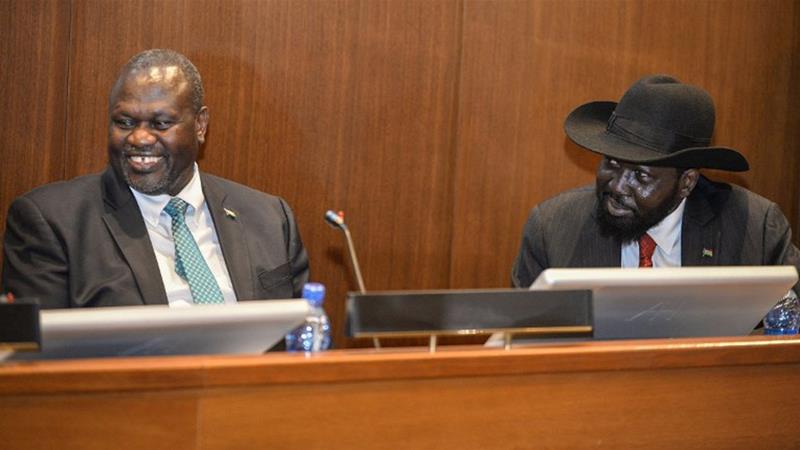By Skylar Salim
Impunity Watch Reporter, Africa
JUBA, South Sudan — On September 12, 2018, South Sudan’s President Slava Kiir and rebel leader Riek Machar signed a peace agreement. The agreement ends the five-year civil war and reinstates Machar as Vice President.

In 2011, South Sudan gained independence from Sudan with Slava Kiir as President and Riek Machar as his Vice President. In 2013, tensions that had built up between the two turned into an armed conflict when Kiir accused Machar of planning a coup against him. According to the United Nations, five years of conflict with rebel factions ensued that led to at least 50,000 deaths. Many of those who died were civilians. It has also been estimated that at least 4 million South Sudanese, a quarter of the population, were displaced by the fighting. The civil war has substantially hurt the country’s economy and agricultural sector.
The deal, signed in Ethiopia and mediated by Sudan, calls for a cease-fire and allows Machar to return as Vice President. As Ethiopian Prime Minister Abiy Ahmed noted before the signing, “the eyes of the world are upon us as the South Sudan leaders commit today to press for reconciliation and lasting peace in their country.” Many countries in the region have an interest in ending the conflict between the government and rebel factions. The civil war threatens the stability of the region. This stability would worsen with the outpouring of refugees from South Sudan.
This is not the first peace agreement between the government and rebel factions. Previous peace deals lasted only months before fighting resumed. With these previous failures in mind, some are skeptical as to whether this deal will last. In light of such skepticism, Ateny Wek Ateny, a government spokesman, told The Associated Press that this was the “final final” deal and that both Kiir and Machar found it to be an acceptable agreement. In response to the question of whether peace would be permanent, Taban Deng, South Sudan’s current Vice President, referred to an African proverb. Addressing the UN, Deng said that this agreement was different because leaders look “where you have slipped, because it is there you will find what made you fall.”
Despite the peace deal and the assurances made by those who have signed it, there have been reports to the UN Security Council that some fighting continued in Central Equatoria and Unity.
For further information, please see:
Africa News — South Sudan Peace Deal is Permanent: VP Deng Tells UN — 29 September 2018
Al-Jazeera — South Sudan President Signs Peace Deal With Rebel Leader — 12 September 2018
Reuters — South Sudan’s President, Rebel Leader Sign Peace Deal — 12 September 2018